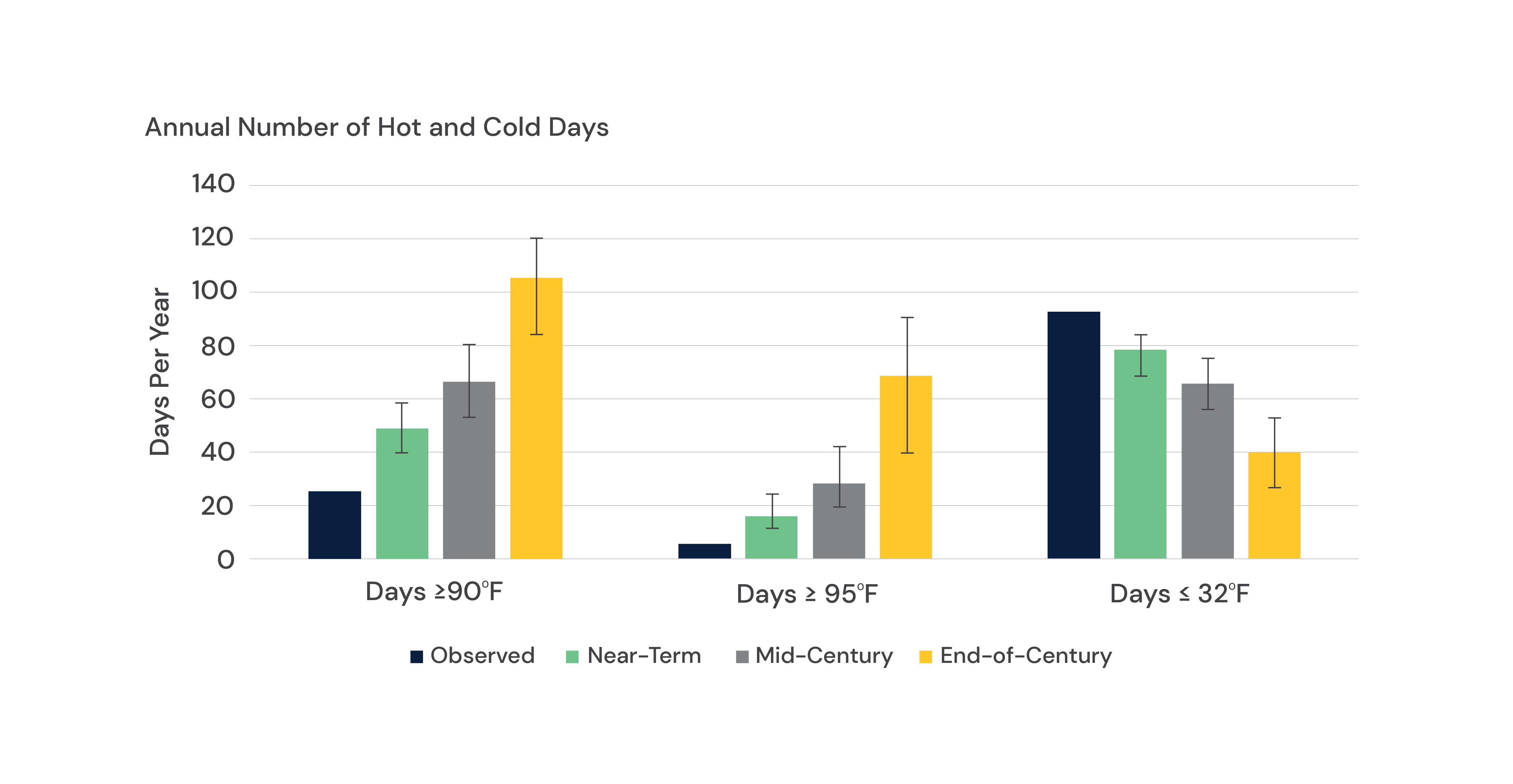Climate-resilient planning for local infrastructure
Challenge
The Baltimore Metropolitan Council recognized that local public works and transportation departments across the region are already experiencing impacts from extreme weather—including increased maintenance, damage to infrastructure, operational impacts, and rising costs. At the same time, local governments can feel overwhelmed by the challenge of adapting to these changes, and not know where or how to start.
For example, as the chart below shows, the number of hot days in the Baltimore region will increase significantly toward the end of the century. Extreme heat can cause roads to buckle, rails to expand, and other serious impacts to local infrastructure.

Solution
Our team focused on infrastructure service areas that local governments play a role in managing: transportation, stormwater, water, wastewater, facilities, and solid waste. Through interviews with eight local jurisdictions and a state department, as well as cross-jurisdictional steering committee meetings, we identified local planning needs that could be addressed consistently at a regional level.
We developed a practical, user-friendly, one-stop Resource Guide for local infrastructure adaptation planning. The guide:
- Synthesizes projected climate data for the Baltimore region—including temperature, precipitation, sea level rise, coastal storms, and extreme weather—to provide regional and local projections using common assumptions about the future
- Documents the direct and indirect impacts on local public works and transportation departments to raise awareness of future impacts
- Identifies relevant regulations that affect local governments’ day-to-day decision-making
- Describes the range of adaptation options to address the impacts within infrastructure planning, design, construction, maintenance, and operations, and provides examples from other localities to help guide implementation
- Identifies funding opportunities for local adaptation options, a crucial piece for implementation
The Resource Guide provides an overview of the key climate concerns—and solutions—to help local governments quickly identify how they can prepare. Additionally, we developed a toolkit that helps users apply the knowledge from the Resource Guide to their own circumstances and identify actionable strategies and next steps.
6
22
16
Results
The Baltimore Metropolitan Council is working with local public works and transportation departments in the region to operationalize the Resource Guide. The guide will allow public works and transportation departments in the Baltimore region and beyond to efficiently identify strategies that can increase their resilience—ranging from modifying projects within capital improvement programs to factoring climate projections into infrastructure planning.
The Baltimore Metropolitan Council is also exploring strategies to institutionalize ongoing interjurisdictional coordination to strengthen resilience throughout the region.